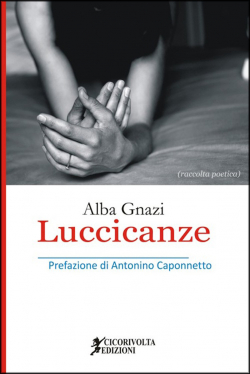Editorial
by Francesca Del Moro
The selected poets were asked to view from their own personal perspective – be it religious or not – two groups of seven that are fundamental to the Roman Catholic Church: vices and virtues. By choosing to deal with one of the four cardinal virtues in its less known version – namely courage instead of fortitude – Raffaele Ferrario shares with us an inner dialogue that both ties and loosens doubts, opening up vibrant visions, while a particular interpretation seems to be suggested by the dedication, a possible hint to the French heroine who showed such a great courage both in life and on the edge of death. By choosing religion as a metaphor for a political topic, Alessandro Silva’s flowing and weighty verses prefigure an Apocalypse that puts an end to a lost humanity, buried in ash and concrete and clinging on a faith made of words that is not able to save it anymore. Through a thick weave of sound correspondences Giovanna Olivari’s poem sets up a passionate and funny dialogue on the theme of sloth, without leaving out some literary and religious references, as she does at the close, which is particularly successful. Sarcastic and scathing, Eleonora Tarabella blends together the seven virtues and skilfully plays with language to make the Catholic doctrine blow up and at the same time to strike Church’s hypocrisy at the heart.
Courage
by Raffaele Ferrario
what is courage?
it’s the expanded ray of the heart
when the needle of the sun
lightens the gulfs and the moon
in its fullness lays down
on the waves of the sea
when sand flows
in the comfort of doubt
and light washes your discomfort away
under the surface
of what becomes perfect
in courage we celebrate
the marriage with ourselves
and we witness the glory
that wind savours
and rigour understands
but courage
what does courage answer
to the question who are you
nothing worthy
only the void
where the being vibrates
for the profusion of hows
instead of getting lost
in the ego of endless whys
curious as much as disappointed
to stay very small in greatness
this is courage
that from the void gathers
and in the void
experiments the joy
of focusing on itself
when the flame
penetrates the knife
and forcefully inhearts
the porosity of metal
in the dynamic spot
where the encounter radiates
from the directional nucleus
at the height of conscience
where breath is familiar
and death an opinion
you need courage
flowing between kingdom and crown
supported by mercy
beauty beyond foundation
as a vertical water source
in which to drink knowledge
you don’t need muscles
but your body in unison
and it is the movement of the heart
that tends to link
with its own intelligence
courage
the chorus directed by the heart
with magnificent wisdom
the immense organ
of our skills
made to victory
without the end
Sloth
by Giovanna Olivari
Your sloth sloshes me
kills me thrills me
wraps me traps me
sooths – you said – my
stress-induced ulcer.
Laziness – you said – is
revolutionary.
Not yours.
Sloth deceives
and betrays.
That indolence, your lack
of desire for anything,
for anyone, even for yourself
isolated, exiled you.
Petrified vacuousness.
Marble feather
under the rain and the sun.
A giant among Lilliputians
with your hands
endless threads
you have tied
your net your inescapable
prison.
I won’t be with you
in the Styx Marsh.
I won’t turn around
when you call me
with sloth’s sweet flute.
I won’t become a pillar of salt.
I
won’t turn around.
Just prude I should be
by Eleonora Tarabella
Just prude I should be
my fort to defend
and Justice and Prudence
I’d have to understand
together with Fortitude,
which is not my attitude
and neither Temperance,
which is a huge hindrance.
These are the so-called
four cardinal virtues
that are often taught and painted in churches.
Do cardinals know them?
Well: ask them and kiss
the hem of their garment
’cause it’s their predicament
that you cannot miss.
They all put in practice
faith, hope, charity
that begins at home,
right out there in Rome
where villas are bought
and virtues are taught,
while kids are so cherished
that are brought to bed,
but this is not bad!
So why do I have my fort to defend?
To learn the big Virtue:
it’s called TO PRETEND!
Rose of faith
by Alessandro Silva
It’s the end of the world between
its ash trees and winter gusts.
A measure of wheat is left
all the birdseed granted to the birds.
Three high measures of barley are for the
killer angels. They have fire and wings
but also two hands made for swords.
You were crawling yesterday in your Eden and you saw them.
Of the age to survive the mouth is left
orphaned, a withered rose
of faith. It’s amazement in the minutes
of going out on concrete, out of the factories.
Luccicanze
by Alba Gnazi
“I was going to write harmless, but poetry is rarely so. It is never so, actually” – these are the author’s words on the back cover of Alba Gnazi’s book, Luccicanze (Shinings). A strong and definite poetic statement, in which she claims for writing the courage to hurt the author and the others, an inevitable consequence of baring yourself and – through you – your readership. The inevitable association with the iconic Kubrick’s film evokes a special and – just like Danny’s – far from harmless sensitivity, one that bestows on the poet the blessing/curse of unearthing the tracks hidden in reality. Tracks that – Alba writes – are the “stones discarded by the sea”, unexpected gems shining with water and sun “on the verge of shadow”. The book, as the author explains in a preface-like note, is made up of poems written in the course of five years, all linked by a common thread that corresponds to “the writing hand”. This seems to suggest a certain degree of heterogeneity, but this is effectively prevented thanks to a solid stylistic coherence. Vast and imaginative, the poems work exactly like musical scores, marked by recurring devices such as pressing repetitions, alliterations and assonances, anacoluthons and suspensions, and a fine-tuned rhythm that sometimes seems to resemble a song and sometimes modulates itself on the emotional surges, on the panting and calming down of the breath. The endings are particularly well-finished, especially when the rhythm slows down like a dying music or light. The ever-so-present music pushes the multiple contents towards an intensification, as if the verses were put in motion by the desire to deeply penetrate life, suck it like the poet does with the moon in one of the beautiful poems dedicated to her, or on the contrary to be penetrated right through the bones (the moon and the bones are among the recurring elements that make the collection homogeneous). Knowing no bounds, the verses take on the form of a narrative tale, a news report, a stage dialogue, a film sequence, without ever losing their rhythm or density and thus always remaining – in their entirety – poetry. This poetry is continuously questioned in the attempt to push the word beyond its limits – as the poem “I don’t feel like writing poems” clarifies – until it gains a supernatural quality. Influenced by English and American literature, and especially by the much-loved T.S. Eliot and Sylvia Plath – to which a poem-song is dedicated – the author doesn’t shy away from using their language, but also her dialect, to make her verses even more expressive. The themes are all the themes of life: love, at times just lightly touched and at times lived with passion, the mother-children relationship that is dealt with through multiple experiences and points of view, the memories that emerge to the surface bringing inside and outside spaces and figures – mainly women – evoked with fondness and attention to details, the news events and their pressing on the conscience until identification. An extremely rich, complex and passionate book that, despite being a debut collection, shows great mastery and opens up new and promising perspectives.

